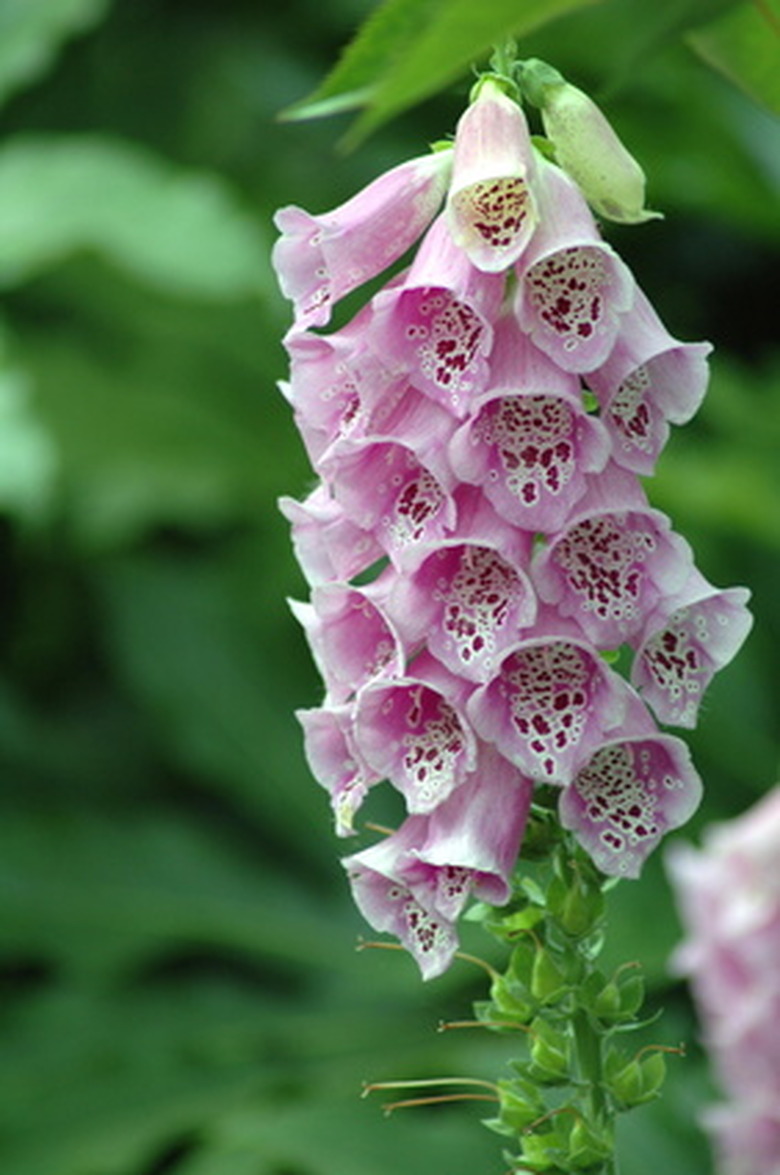The Disadvantages Of Flowers
A flower garden can bring beauty to the landscape as the flowers attract bird, bees and butterflies. Flowers can also cut for use in floral arrangement or dried for use in wreaths. Despite their beauty and useful purposes, there can be disadvantage of flowers.
Invasive
Some flowers, like purple loosestrife or dame's rocket, self-seed to repopulate not only the area surrounding the plant, but the seeds can float on the wind or water, or be carried by animals or people to others areas where they drop and take root. Vines, like Asian or Japanese honeysuckle, grow quickly and drop seed. The base of a honeysuckle vine can become very dense, requiring a chain saw to remove it. Ground covers, like periwinkle, can create dense surface stems and underground rooting systems making them difficult to eradicate. Ground cover may also prevent nutrients from reaching surrounding plants. The rooting systems of plants like yucca extend under the ground to surface, sending up new shoots several feet away from the main plant. Those new shoots can root and send out more underground threads that will subsequently sprout above ground, root and continue the spreading cycle.
- A flower garden can bring beauty to the landscape as the flowers attract bird, bees and butterflies.
- Some flowers, like purple loosestrife or dame's rocket, self-seed to repopulate not only the area surrounding the plant, but the seeds can float on the wind or water, or be carried by animals or people to others areas where they drop and take root.
Poisonous
Nature has given some plants protection from animals through poisonous foliage. Lily of the valley is a pleasantly scented, spring perennial. Digestive upset and irregular heart beat can occur if the foliage of lily of the valley is eaten. Consuming the leaves of foxglove, a tall perennial flower, can cause the heart to beat so irregularly, it could be fatal. Seek immediate medical attention for anyone thought to have eaten any part of poisonous plants.
Allergies
Flowers produce pollen as part of their reproductive process. For individuals sensitive to flower pollen, blooming flowers like dahlia or sunflower can cause sneezing, itchy eyes or runny nose. In addition to pollen allergies that affect the body through inhalation, some plants can cause skin irritation when touched. The foliage of sweet alyssum, an annual ground cover, may cause skin irritation if touched. Handling chrysanthemum or the leaves of sunflower can cause skin rash in some individuals.
- Nature has given some plants protection from animals through poisonous foliage.
- The foliage of sweet alyssum, an annual ground cover, may cause skin irritation if touched.
Prickly flowers stems, like those of roses and bougainvilleas, can poke through the skin if not handled carefully. The stiff, pointed sword-like leaves of yucca can hurt if brushed against.
